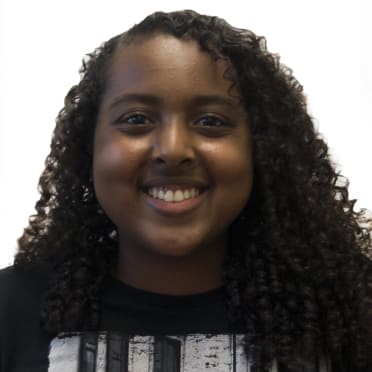LOS ANGELES -- Amid the clamor of activity beyond the makeshift walls of PLAY BALL Park’s All-Star Clubhouse on Saturday, all eyes were fixated on five men sitting on stage in a standing room-only pavilion within the Los Angeles Convention Center.
Six-time All-Star pitcher Fernando Valenzuela, Hall of Fame designated hitter Edgar Martinez, Dodgers Spanish-language broadcaster Jaime Jarrín, two-time All-Star third baseman Vinny Castilla and Dodgers All-Star outfielder Manny Mota took part in a panel on Latino baseball legends, which was moderated by Jesse Sanchez, MLB.com’s director of talent development and diversity outreach.
Sanchez opened the discussion (which took place in both English and Spanish) by setting the stage, reminding the audience -- or making them aware -- that they were in the presence of cultural titans of the sport.
The Mexican-born Valenzuela, the first and only player to win the Cy Young and Rookie of the Year Awards in the same season en route to helping the Dodgers win the 1981 World Series. The Puerto Rico-raised Martinez, one of the greatest Mariners of all time. The Ecuadorian Jarrín, who is the longest-tenured active English or Spanish broadcaster in his 64th season. The Mexican-born Castilla, whose 320 career home runs are the most by a player from his country in MLB history. And the Dominican Republic native Mota, who spent 13 seasons in Dodger blue and was a longtime holder of the all-time record for pinch-hits.
“I think today is important for us to hear their side, hear their perspective and help us understand how we are all similar and connected in a lot of ways,” Sanchez said. “… I hope you can relate to their stories, because their stories are our stories.”
For Valenzuela, that meant a trip down memory lane to four decades prior, when he launched a phenomenon that was known around baseball as “Fernandomania.” He won his first eight starts in a row (with five shutouts, no less), compiling a minuscule 0.50 ERA with a whopping 68 strikeouts. Looking back, Valenzuela called it “one of the best moments” of his career, placing it alongside his World Series Game 3 start against the Yankees in 1981, when he tossed a complete game to dig the Dodgers out of a 0-2 hole and swing the 4-2 Series in their favor.
Those exploits made Valenzuela a heroic figure in the United States and in his native Mexico, as his fellow countryman Castilla attested.
“When Fernando pitched, in Mexico, you don’t see [anybody] in the streets, man. Everybody wanted to watch the game,” Castilla said. “I’m a little bit emotional, because this man right there gives back to the game so much, not just in Mexico but in all of Latin America.”
During that era, Valenzuela was one of the few players of Hispanic descent in the Major Leagues. Not much earlier, when Jarrín started his career in the booth, he said he could “count with the fingers on my hand” how many there were, naming the likes of Roberto Clemente and Orlando Cepeda.
“Now it is my greatest pleasure to see every organization has at least in the Major Leagues five or six players,” Jarrín said. “And it is great for me to see the best players in baseball, most of them are from Latin countries, mainly from the Dominican Republic, Puerto Rico, from Mexico and now from Venezuela also. It is fantastic to see.”
The panelists called particular attention to players like Ronald Acuña Jr. (Venezuela), Fernando Tatis Jr. (D.R.), Juan Soto (D.R.) and Julio Urías (Mexico), saying that they are now carrying the torch for Latino representation in baseball. In doing so, they are also providing aspiring ballplayers with something that the legends didn’t always have when they were young: role models in the game who looked like them.
Martinez became part of a legacy of Puerto Rican baseball stars when he joined the Hall in 2019, as his plaque in Cooperstown went up alongside players like Clemente, Cepeda and Ivan Rodriguez. That was a moment of astonishment for him, as was seeing the reaction on the island after the announcement was made. He took phone call after phone call and saw several videos from where he grew up in Dorado, including a basketball court full of people throwing objects in the air in celebration.
“Since I was a little kid, I wanted to play in Major League Baseball. I wanted to be a big league player,” Martinez said. “It has allowed me to basically live my dreams; it’s been amazing. So I hope some of the young kids that we see here one day are able to have the same dream. I also want you to know that it is very possible. I never thought that I would be here today and I would be a big league player, but keep dreaming, doing your best and you don’t know where you’re going to end up one day.”
As the panelists shared, the journey won’t be easy. They faced many challenges along the way, most prominently having to learn English as a second language in order to communicate with players, coaches and media. But with support and investment from their organizations, they were able to find success. Jarrín credited the Dodgers as one such club, considering himself lucky to have landed with “the best organization in baseball.”
“They have always treated Spanish as equal to English,” Jarrín said. “There is no second class with the Dodgers. That’s a big difference with other organizations in baseball. When I came to the Dodgers in ‘59, the Latinos coming to the games were only 8%. Now there is 46% Latinos coming to Dodger Stadium. [It’s] unbelievable.”
With Dodger Stadium hosting the All-Star Game for the first time in 42 years on Tuesday, that difference will be on full display. But it all starts with having someone to root for, and that’s who these Latino baseball legends have been for generations.
